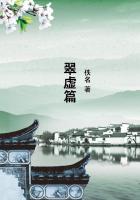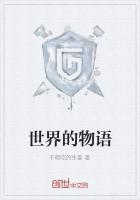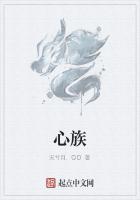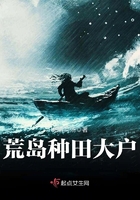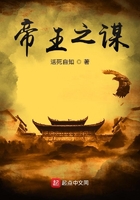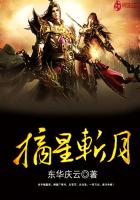It was the fall of the year 218 before the birth of Christ and the Roman army which was to attack the Carthaginians in Spain had left Italy. People were eagerly waiting for news of an easy and complete victory when a terrible rumour began to spread through the plain of the Po. Wild mountaineers, their lips trembling with fear, told of hundreds of thousands of brown men accompanied by strange beasts "each one as big as a house," who had suddenly emerged from the clouds of snow which surrounded the old Graian pass through which Hercules, thousands of years before, had driven the oxen of Geryon on his way from Spain to Greece. Soon an endless stream of bedraggled refugees appeared before the gates of Rome, with more complete details. Hannibal, the son of Hamilcar, with fifty thousand soldiers, nine thousand horsemen and thirty- seven fighting elephants, had crossed the Pyrenees. He had defeated the Roman army of Scipio on the banks of the Rhone and he had guided his army safely across the mountain passes of the Alps although it was October and the roads were thickly covered with snow and ice. Then he had joined forces with the Gauls and together they had defeated a second Roman army just before they crossed the Trebia and laid siege to Placentia, the northern terminus of the road which connected Rome with the province of the Alpine districts.
The Senate, surprised but calm and energetic as usual, hushed up the news of these many defeats and sent two fresh armies to stop the invader. Hannibal managed to surprise these troops on a narrow road along the shores of the Trasimene Lake and there he killed all the Roman officers and most of their men. This time there was a panic among the people of Rome, but the Senate kept its nerve. A third army was organised and the command was given to Quintus Fabius Maximus with full power to act "as was necessary to save the state."
Fabius knew that he must be very careful lest all be lost.
His raw and untrained men, the last available soldiers, were no match for Hannibal's veterans. He refused to accept battle but forever he followed Hannibal, destroyed everything eatable, destroyed the roads, attacked small detachments and generally weakened the morale of the Carthaginian troops by a most distressing and annoying form of guerilla warfare.
Such methods however did not satisfy the fearsome crowds who had found safety behind the walls of Rome. They wanted "action." Something must be done and must be done quickly.
A popular hero by the name of Varro, the sort of man who went about the city telling everybody how much better he could do things than slow old Fabius, the "Delayer," was made commander-in-chief by popular acclamation. At the battle of Cannae (216) he suffered the most terrible defeat of Roman history. More than seventy thousand men were killed. Hannibal was master of all Italy.
He marched from one end of the peninsula to the other, proclaiming himself the "deliverer from the yoke of Rome" and asking the different provinces to join him in warfare upon the mother city. Then once more the wisdom of Rome bore noble fruit. With the exceptions of Capua and Syracuse, all Roman cities remained loyal. Hannibal, the deliverer, found himself opposed by the people whose friend he pretended to be. He was far away from home and did not like the situation. He sent messengers to Carthage to ask for fresh supplies and new men. Alas, Carthage could not send him either.
The Romans with their boarding-bridges, were the masters of the sea. Hannibal must help himself as best he could.
He continued to defeat the Roman armies that were sent out against him, but his own numbers were decreasing rapidly and the Italian peasants held aloof from this self-appointed "deliverer."
After many years of uninterrupted victories, Hannibal found himself besieged in the country which he had just conquered. For a moment, the luck seemed to turn. Hasdrubal, his brother, had defeated the Roman armies in Spain. He had crossed the Alps to come to Hannibal's assistance. He sent messengers to the south to tell of his arrival and ask the other army to meet him in the plain of the Tiber. Unfortunately the messengers fell into the hands of the Romans and Hannibal waited in vain for further news until his brother's head, neatly packed in a basket, came rolling into his camp and told him of the fate of the last of the Carthaginian troops.
With Hasdrubal out of the way, young Publius Scipio easily reconquered Spain and four years later the Romans were ready for a final attack upon Carthage. Hannibal was called back. He crossed the African Sea and tried to organise the defences of his home-city. In the year 202 at the battle of Zama, the Carthaginians were defeated. Hannibal fled to Tyre. From there he went to Asia Minor to stir up the Syrians and the Macedonians against Rome. He accomplished very little but his activities among these Asiatic powers gave the Romans an excuse to carry their warfare into the territory of the east and annex the greater part of the AEgean world.
Driven from one city to another, a fugitive without a home, Hannibal at last knew that the end of his ambitious dream had come. His beloved city of Carthage had been ruined by the war. She had been forced to sign a terrible peace. Her navy had been sunk. She had been forbidden to make war without Roman permission. She had been condemned to pay the Romans millions of dollars for endless years to come. Life offered no hope of a better future. In the year 190 B.C. Hannibal took poison and killed himself.
Forty years later, the Romans forced their last war upon Carthage. Three long years the inhabitants of the old Phoenician colony held out against the power of the new republic.
Hunger forced them to surrender. The few men and women who had survived the siege were sold as slaves. The city was set on fire. For two whole weeks the store-houses and the pal- aces and the great arsenal burned. Then a terrible curse was pronounced upon the blackened ruins and the Roman legions returned to Italy to enjoy their victory.
For the next thousand years, the Mediterranean remained a European sea. But as soon as the Roman Empire had been destroyed, Asia made another attempt to dominate this great inland sea, as you will learn when I tell you about Mohammed.




